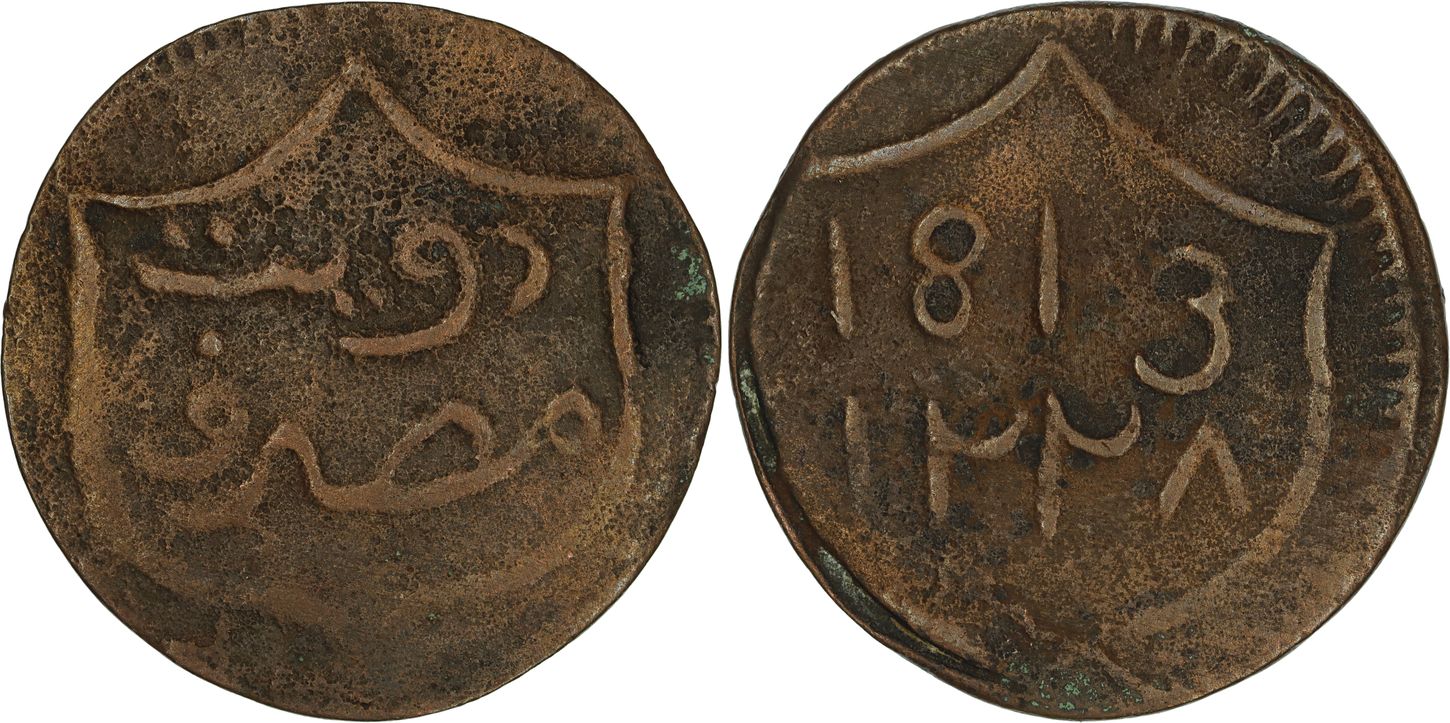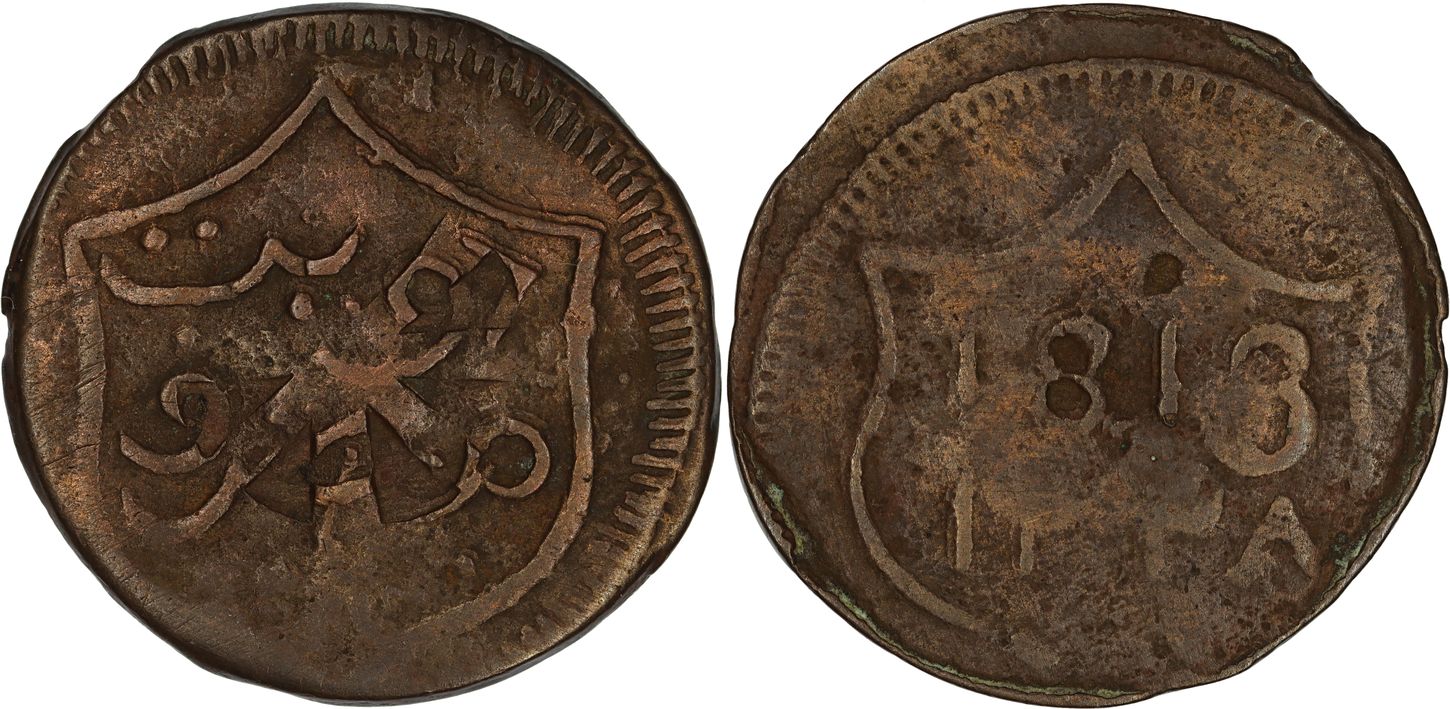The Independent State of Maluka, Borneo

British East Indies, Borneo, the Independent State of Maluka, Æ Duit, AH 1228, 1813 AD, Malacca mint, issued by Private English merchant Alexander Hare. Obverse: Shield with denomination in Arabic. Reverse: Shield with date in Gregorian and Anno Hegirae. KM-5. A scarce issue and an interesting snippet of history pertaining to the British Empire’s extension into the East Indies, Very Fine or better
The Independent State of Maluka was an area on the southern end of the Island of Borneo, southeast of Bandjermassin, and was established by the private English merchant Alexander Hare. Following the successful invasion of Netherlands East Indies by the Honourable East India Company in 1811, concurrently to the Napoleonic Wars in Europe, Lieutenant-Governor Stamford Raffles, the newly appointed English governor of Java, selected Hare to be Commissioner of Borneo, and through negotiation with the Sultan of Banjarmassin, acquired the 1400 square miles that would become Maluka. The state was moulded into a private fiefdom with its own flag, customs duties, and coinage such as the copper duit presented here, and Alexander Hare adopted the title of Rajah, similar to what would later be the dynasty of White Rajahs of the British Protectorate of Sarawak. Hare’s management of East India Company funds instigated a Commision of inquiry, and amongst poor financing the topic of enslavement of the local populations was raised, first of local women to satisfy his polygamous lifestyle, and local men as a slave workforce. Although the latter issue was uncomfirmed by the investigation, Maluka did infact face a shortage of labour, a problem which was addressed through negotiating the use of convicts from the conquered Dutch colony.
With the signing of the Anglo-Dutch Treaty of 1814, as part of the aftermath of the Napoleonic Wars, the Dutch East India company requested the return of their lost colonies, and although resisted by the British East India Company for a time, Dutch momentum and influence grew through the support of the local Sultanates. Despite remaining relatively independent of the change in authority of the area for several years, Hare antagonized the local Dutch colonists, causing Maluka to be branded a Dutch enemy and a possible threat as a springboard for a future British invasion of Java. In 1818, the Dutch declared that the Englishman had no legal right to the property, ordering the local contingent to take control of the land, which happened in July, causing Alexander Hare, as well as his harem of 40 Malay women, to evacuate. He remained in the East Indies for the following year until moving to Capetown, South Africa, where he remained until 1926 before moving once more.

British East Indies, Borneo, the Independent State of Maluka, Æ Duit, AH 1228, 1813 AD, countermarked with the ‘Wheel of Fortune’, Malacca mint, issued by Private English merchant Alexander Hare. Obverse: Shield with denomination in Arabic, countermarked with Wheel. Reverse: Shield with date in Gregorian and Anno Hegirae. KM-5. A scarce issue and an interesting snippet of history pertaining to the British Empire’s extension into the East Indies, Very Fine or better

Leave a Reply
Want to join the discussion?Feel free to contribute!